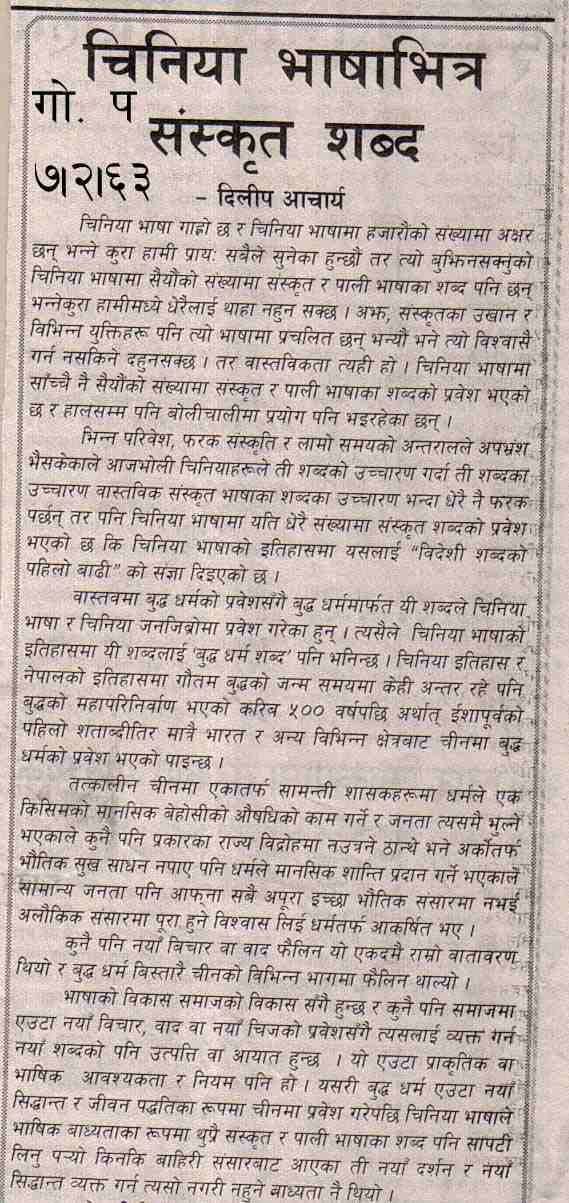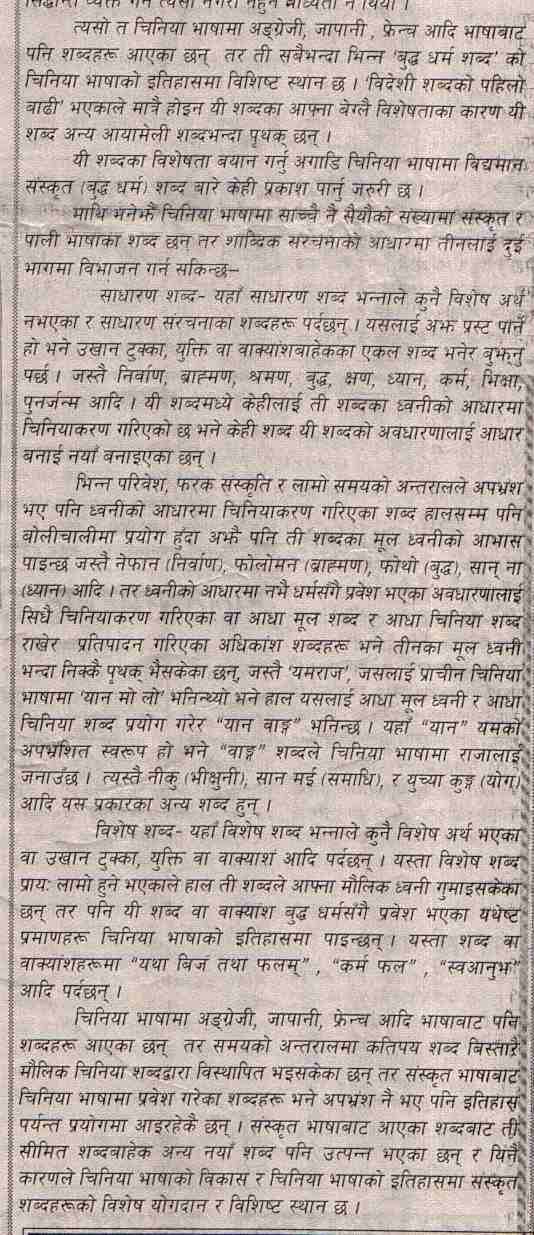|
[VIEWED 32602
TIMES]
|
SAVE! for ease of future access.
|
|
|
|
|
|
Gautam B.

Please log in to subscribe to Gautam B.'s postings.
Posted on 12-19-05 12:20
AM
Reply
[Subscribe]
|
Login in to Rate this Post:
0  ?
? 
|
| |
da jia hao! za men shuo hanyu ba! zuo xin pengyou ba! (dui bu qi, wo de hanyu yi jing bu xing le. Yuan liang wo.)
|
| |
|
|
|
|
lootekukur

Please log in to subscribe to lootekukur's postings.
Posted on 06-24-06 10:42
PM
Reply
[Subscribe]
|
Login in to Rate this Post:
0  ?
? 
|
| |
chhu chhiii choooo chhhwanng .... hahahahahahhaaa ni han????????? hehehehehe Loote
|
| |
|
|
red

Please log in to subscribe to red's postings.
Posted on 06-24-06 10:56
PM
Reply
[Subscribe]
|
Login in to Rate this Post:
0  ?
? 
|
| |
damm dude nice chinese....... hhehehee
|
| |
|
|
lootekukur

Please log in to subscribe to lootekukur's postings.
Posted on 06-24-06 10:59
PM
Reply
[Subscribe]
|
Login in to Rate this Post:
0  ?
? 
|
| |
red, chhowa.. kho jhu mo rojebhu xiangju khu kha khi ? xiangju Loote
|
| |
|
|
red

Please log in to subscribe to red's postings.
Posted on 06-24-06 11:29
PM
Reply
[Subscribe]
|
Login in to Rate this Post:
0  ?
? 
|
| |
|
|
| |
|
|
lootekukur

Please log in to subscribe to lootekukur's postings.
Posted on 06-24-06 11:37
PM
Reply
[Subscribe]
|
Login in to Rate this Post:
0  ?
? 
|
| |
ni ma hua? xiangju, shwangle peng di!!! jigxi Loote
|
| |
|
|
prodigalson

Please log in to subscribe to prodigalson's postings.
Posted on 06-25-06 3:59
AM
Reply
[Subscribe]
|
Login in to Rate this Post:
0  ?
? 
|
| |
Ni men xiang xue hanyu ma??? Wo bang ni. you wen ti gei wo liu yan. 你们想学汉语吗? 我帮你. 有问题给出我留言.
|
| |
|
|
Acharya Dilip

Please log in to subscribe to Acharya Dilip's postings.
Posted on 06-25-06 8:35
AM
Reply
[Subscribe]
|
Login in to Rate this Post:
0  ?
? 
|
| |
यो धागोमा कसैले चिनीया भाषा त कसैले संस्कृत समेत लेखेर रमाईलो गरेको पाएँ। आफूलाई संस्कृत नआए पनि चिनीया भाषाको बिद्यार्थी भएको नाताले र चिनीया भाषामा समेत संस्कृत शब्दहरु भेटीएकोले यौटा सानो लेख लेखेको थीएँ । चिनीया भाषामा चाख राख्नेलाई रमाईलै लाग्ला भनेर यहाँ राखेको छु ।

|
| |
|
|
Acharya Dilip

Please log in to subscribe to Acharya Dilip's postings.
Posted on 06-25-06 8:37
AM
Reply
[Subscribe]
|
Login in to Rate this Post:
0  ?
? 
|
| |
And the remaining...

|
| |
|
|
isolated freak

Please log in to subscribe to isolated freak's postings.
Posted on 07-02-06 1:28
AM
Reply
[Subscribe]
|
Login in to Rate this Post:
0  ?
? 
|
| |
Dilip ji, Interesting article. Thanks for posting it on Sajha. Being a student of Chinese and all things Chinese myself I liked your piece and thought of sharing my views. I hope you won't take it personally and we can start a nice debate on this interesting topic. Like you said, Chinese contains words from many languages, including Pali and Sanskrit. But also, like you said, the transliteration system makes those words Chinese and I am always amazed at the fact that they seem to find the perfect character for those new words and if you can read the character(s) and/or combination(s) you can easily guess the meaning. One inteseting fact that you didn't mention and which I think was worth mentioning is that that the guardian diety of Beijing is named Yamantak. You can find his temple right next to the Beihai Stupa in Beijing. And in the Buddhist monastaries you have the guards with the Sanksrit names Dhritarastra etc. protecting the dieties such as Samantavadra, Maitreya, Guanyin . The Chinese begin their prayings with the transliteration of Om Namo Amitabha. And you find the Buddhist/Sanskrit influence in one of the most popular Chinese Classics, The Journey to the West/ Xi You Ji in which Xuan Zang leads the monkey king and pig to India to learn the Buddhist sutras. Since this story takes place in the Tang dynasty, we can easily assert that the idea of learning Buddhism and coming up with new words and concepts such as Su Bo Dhi and Guan Yin, Ya Ma, Wan Shou Guan Yin existed well before then. The Chinese scholars then and until fairly later before the Song Neo Confucianism became the "policy" of the state in the Song, Yuan, Ming and Qing periods held India and its philosophy in high regard. One thing that is truly amazing is that the Chinese were not learning the Indian philosophy to compare it with their own and prove that their (Chinese) philosophy was superior the way the later day Japanese "nativist" scholars such as Hirata Atsutane and Motoori Norinaga were doing; they (the chinese) were doing it to incorporate the new ideas into Chinese philosophy. But the liberal tang dynasty which opned up China didn't last long and the later day rulers found it scary to have foreign ideas "influencing" the Chinese. Then the Chinese started to view things in the Barbarian/Civilized dialectic and China decided to close itself or save itself from the Bararians. China's impressive naval fleet led by Zheng He was ordered not to explore anymore and that isolation from foreigners and foreign ideas had serious consequences for the Chinese in later years. Ok just my views. Please feel free to disagree.
|
| |
|
|
katmandu_np

Please log in to subscribe to katmandu_np's postings.
Posted on 07-03-06 2:17
PM
Reply
[Subscribe]
|
Login in to Rate this Post:
0  ?
? 
|
| |
ju che jhi xyang chu la ne makhala ? xi zhang zamin xe chi cho cha chhi chuuuuuu xhuuuuu zhang zhi peng che
|
| |
|
|
Acharya Dilip

Please log in to subscribe to Acharya Dilip's postings.
Posted on 07-04-06 8:27
AM
Reply
[Subscribe]
|
Login in to Rate this Post:
0  ?
? 
|
| |
Hi isolated freak! You are 100% correct about the fact that words borrowed from foreign languages are easy to guess through the corresponding characters. As per their traditional practice, a Chinese character with same or similar sound (pronunciation) is used with some additional strokes or components to indicate the meaning in this kind of words (borrowed from foreign languages). That makes it easy to guess the meaning as you have described in your post. Yes like you said there are several other words that is originated from Sanskrit, which I have not mentioned in my article. Yes Xuan Zang was sent to India to learn (and bring back) Buddhism/Buddhist Scriptures, but the fact is that Buddhist philosophy was already spreading its roots in China, before that and Xuan Zang was sent to India, to get deeper and details about it. Though Xuan Zang may have contributed a lot to take the "flood" of Sanskrit to China but there are several other scholars (who are not as famous as Xuan Zang) who had also translated so many Buddhist Scriptures. Well….though you have asked me to free to disagree with you but I don't think that I need to disagree with you for the points you have mentioned. Thanks for comment and hope to share your views in future too. Dilip
|
| |
